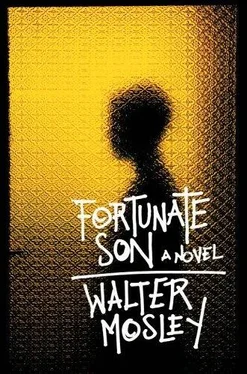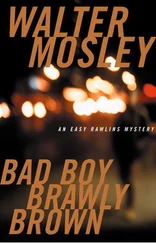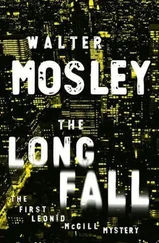“What I’m always looking for.”
“What’s that?”
“My mother.”
Later that week, when Lily was explaining to Thomas how she made cookies in her lightbulb-powered play oven, the topic again turned to names.
“How come if your real name is Thomas or Tommy do they call you Lucky?” Lily asked.
“Your Uncle Bruno named me that,” he said. “It was the first day we met and I got to go stay at the nurse’s office, and he thought that was lucky.”
“Was it?”
“I don’t know. Maybe if it happened to Bruno it would be. But I’m not very lucky at all. Really my name is kinda like a joke — they call me Lucky because I’m not lucky at all.”
“How come?”
“I don’t know. I think I was born like that. I fall down and lose things. Other people have a nice life, like you with your mother and Harold who love you. And others just end up on the street like me.”
“Could you die from not bein’ lucky?” she asked, worry filling her large brown eyes.
“I don’t think so,” Thomas said. “I’ve been thinking a lot about that. The main thing about being unlucky is that bad things happen to you and you feel bad. If you died, other people would feel bad, and then they would be unlucky.”
Harold just didn’t like Thomas; most of the time the plumber ignored his houseguest, even when he sat down to dinner with the family. After the first few weeks Thomas started eating in his room at night. He didn’t mind Harold’s cold shoulder, but the big plumber would also fight with his wife and adopted daughter if Thomas was there.
The final straw was on a day when Thomas was supposed to have cut the lawn. Monique had baked a chicken for dinner, and she was carving it when Harold said to Thomas, “That was a piss-poor job you did on the grass today.”
“I mowed it, Harold,” Thomas replied. “Front lawn and back.”
“But you forgot to do the edges along the path and out on the sidewalk. If you don’t do the edges it’s just a raggedy-ass mess.”
“I thought that it looked nicer to leave the edges,” Thomas said. “You know, it looked more like real grass instead of fake-like.”
“Listen, niggah,” Harold said, “don’t lie to me about bein’ lazy. You didn’t do it ’cause all you want is to lie around an’ live offa me instead’a gettin’ a real job an’ makin’ something outta yourself.”
When Thomas heard this he decided to stay silent. He saw that Harold was mad and found no reason to argue. Harold was a lot like Elton — angry at the world and needing to say so.
The whole thing would have blown over if Monique hadn’t driven her carving knife through the chicken, splitting the plate underneath in two and driving the blade deep into the pine dining table. The two halves of the plate leaped out from under the bird, flying off the table and shattering on the floor.
Monique’s eyes were wide with rage. Only her ragged breathing seemed to be holding back the violence in her breast. When she began to speak her voice was almost a whisper.
“You don’t know a damn thing, Harold Portman. You don’t know how hard and how long this boy worked at a age when you was livin’ up in your mama’s house, eatin’ her cookin’ an’ pickin’ your nose. You never took a knife or a bullet to feed your family and you never would. You get up and go to work and come home thinkin’ you did sumpin’. But you ain’t done a damn thing that anybody else couldn’t do. You ain’t done enough to earn the right to shine Lucky’s shoes.”
Thomas never ate dinner with the family again. He went back to his room realizing that he couldn’t stay around too long. But he didn’t know where to go. The police wouldn’t be looking for him, but if they stopped him and found out who he was he’d be put back in the facility. So he had to have a plan of action. He knelt down on the shag carpet and closed his eyes, hoping to find his answer in the earth.
A while later a heavy knocking came at his door. He could tell by the force of the knock that it was Harold. He didn’t answer, knowing that nothing good could come from their talking.
When the summer was almost over, Thomas was ready to go.
Monique had Wednesdays off from Ralph’s. So, after Harold was gone to work and Lily was at day care, she came out to bring Thomas his breakfast.
“Hi, Lucky,” she said.
“Hey, Mo.”
“What you doin’?”
“Thinkin’,” he said.
“’Bout what?”
She sat on his bed. He was on his knees on the floor.
“’Bout how you an’ me an’ Lily had our own little family way back then.”
“We sure did have some fun, didn’t we?”
“Yeah. And it felt good too. I guess I should’a done somethin’ other than carryin’ for Tremont.”
“You were only a child,” she said. “What else could you do?”
“Yeah. The worst thing at the facility was that I wished every night that we was in that bed together. I used to feel so safe in that bed.”
“Me too,” Monique said with a hum.
“You did?”
“Oh, yeah. You were the onlyest man I evah knew who wanted just t’take care’a me. You went out again after that fat man cut you ’cause’a me an’ Lily. You know, Harold wouldn’t do that. He might figure sumpin’ else out, but he’s a man, a full-grown man. If he was ten he’d’a run home cryin’.”
“I love you, Mo,” Thomas said.
“I love you too, baby.”
They were quiet for a while. Thomas closed his eyes. His mind was drifting when Monique said, “I’ll leave him an’ go off wit’ you if you want, Lucky.”
This brought Thomas out of his trance.
“But he’s your husband.”
“And I love him most the time. He good t’me an’ Lily, an’ he know how to do with money and build stuff too. But nobody evah been there for me like you have, Lucky. I will move out the house today if you tell me that’s what you want.”
“You don’t owe me all that, Mo. I mean, I did that for you because of Bruno an’ because’a the day you saved me from those boys. I didn’t do nuthin’ special. Anyway, nobody’d let a boy rent a ’partment alone. You made it so that I could have a home. No, you don’t owe me nuthin’.”
Monique got down on the floor and hugged Thomas to her breast. He let out a deep sigh and held tight to her. They stayed in that embrace for the rest of the morning — her kissing his head and him remembering the last night in his mother’s bed.
In the afternoon, when Monique and Lily went food shopping, Thomas gathered up his belongings in a backpack Harold had given him. Before leaving he went into Monique’s drawer, taking twenty dollars and Bruno’s old Social Security card.
Eric graduated from Hensley High at the age of fifteen. He applied to UCLA, was accepted, and moved in to live with Christie. Six months later Christie bore their daughter, Mona. He got a job at the Beverly Hills Tennis Club as their youngest tennis pro and spent his spare time restringing fancy rackets for the wealthier clients. He made good money in tips, and his salary would do. He enjoyed his daughter, was rather perplexed by the deep love Christie felt for him, and drifted further and further away from his father.
He majored in economics because he liked numbers and the objective approach that dominated the department. He didn’t feel overworked, and if some paper came due that he didn’t have time to finish, Christie helped him by typing, reading books for him, or even writing the essays.
He didn’t feel guilty taking her help — after all, he was working twenty-five hours a week, sharing the housework, and carrying a full load at school.
His father had told Eric that if he wanted to be a parent that he had to learn to support himself. The boy didn’t mind. Actually he felt relieved when he was no longer expected to spend time at his father’s house. Ahn still made him uncomfortable, and he felt guilty about his father’s empty life.
Читать дальше












